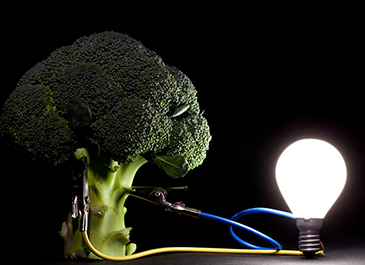Vegan diets have exploded in popularity in the last couple of years: what was once the provenance of hippies and activists is now common practice in the homes of many eco-conscious families across the country. Even Oprah experimented with a weeklong vegan diet for herself and her staff.
A strict vegan diet is one that eschews any animal products or byproducts including milk, honey, marshmallows and even some varieties of wine. A vegan diet was once thought of solely as a matter of animal welfare; it is now understood that eating vegan can go a long way to help reduce your carbon footprint and improve your health.
Eating Green
Ecologically speaking, shifting from the typical North American diet, which is heavily focused on animal products, contributes to a more sustainable way of living. Whether it is eating strawberries in January or consuming vast quantities of mass-produced meat, the foods that end up on a plate have a huge impact on the environment. If you are looking to lighten your footprint, you may want to consider leaning toward a vegan diet. Eating more plant-based meals helps reduce energy and water usage and groundwater contamination from intensive animal cultivation.
A Cure for What Ails You From a health perspective, a growing body of research supports that a vegan diet plays a role in fighting diabetes, arthritis, cancer and more. Researchers from Loma Linda University found that a whole-food vegan diet, when combined with a comprehensive education and fitness plan, actually reversed type 2 diabetes in a population of Pacific Islanders. Other research suggests that vegans tend to have lower body mass and lower rates of heart disease than meat eaters or even vegetarians who consume eggs and dairy.
Staying Powerful
A well-planned vegan diet can be a vibrant and healthy path. Focus on whole plant foods such as fruits, vegetables and beans then supercharge your diet with a few key nutrients. The first is omega-3 fatty acids; eat nuts and seeds like hemp, walnuts or flax and enjoy leafy greens like kale on a daily basis. You may wish to try one of the new vegan omega-3 supplements that contain DHA derived from algae for an added boost of essential fats. Getting enough vitamin D is critical, but note that vitamin D3 is derived from lanolin, a waxy substance from wool, whereas vitamin D2 is vegan. Eat vitamin D-fortified foods such as soy or rice milks and keep an eye out for other vitamin Denhanced foods that will soon be appearing on the market. Find vitamin B12 in fortified dairy and meat alternatives and eat iron-rich foods like greens, dried fruits, legumes and nuts.
Going Vegan-ish
Whether or not you are ready to adopt a full-fledged vegan diet, you can still benefit from plant power. Make vegetables, beans and grains the focus of a meal and enjoy meat as an occasional accompaniment—not the main attraction of every meal. Consider observing a meatless Monday tradition. To get you cooking, find a variety of vegan recipes in A Local Table, Choices’ cookbook, as well as Choices’ new Gluten-Free Food Guide.

